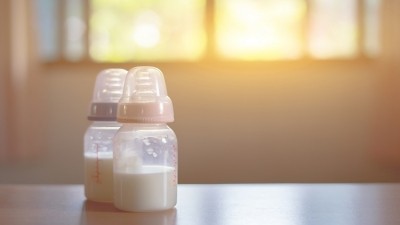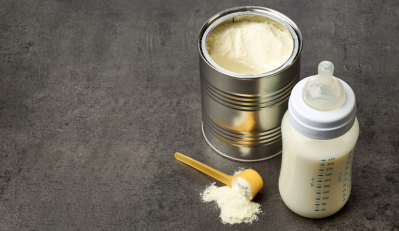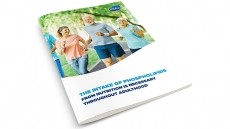a2 Milk Company slump: Firm banks on offline and local e-commerce retail to recoup CBEC losses in China

The ASX and NZEX listed company said revenue for FY2021 was down 30.3 per cent to NZD$1.21bn (US$837m), with net profit after tax plunged 79.1 per cent to NZD$80.7m (US$56m).
Its EBITDA margin was 10.2 per cent or 11.1 per cent – when excluding the cost of acquiring dairy nutrition firm Mataura Valley Milk, while gross margin was down to 42.3 per cent, which it said was partly due to increase in raw milk prices.
Both its revenue and EBITDA margin were within the guidance range that it had provided in May, the company highlighted.
Between September last year and May this year, the company made four announcements on its expected FY2021 group revenue and EBITDA – with the forecasted figures lowered each time.
The firm said its performance has been impacted by 1) unprecedented levels of uncertainty and volatility due to COVID-19 and 2) challenges in its English label infant nutrition products sales channels – referring to daigou and cross-border e-commerce.
Going offline in China
Amid the challenges, the company is seeing hope in China’s offline retail channel.
In FY2021, its sales of China label infant formula – a2 Zhi Chu (至初) climbed 15.4 per cent to NZD$389.9m (US$270.6m), due to growth in offline retail channels, such as mother and baby stores.
Based on the company’s internal data tracking of stores with active sales in the past six months, its products are sold in 22,800 stores – which grew by 1,000 from end December last year.
More aggressive store distribution was seen between June and December last year, where the number of mother and baby stores selling its products grew 3,600 – from 18,200 stores to 21,800 stores.
“a2MC’s 12-month rolling market value share in mother and baby stores was 2.5 per cent at the end of June 2021, versus 2.4 per cent at the end of December 2020, and 2 per cent at the end of June 2020.
“The strategic importance and size of the channel, and the strong resonance the brand has with consumers, means the mother and baby store channel remains the Company’s biggest opportunity to gain market share.
“A key element of the growth strategy review is focusing on maximising this opportunity as well as gaining share in domestic online channels,” the company said in its financial results.
Aside from the importance of offline channels, the company pointed out that local Chinese infant formula players have continued to gain share against the traditional multinational brands in the past year, since they were strong in the domestic channels.
Citing data from Kantar Worldpanel, the company added that value growth in China’s infant formula market was flat due to increased promotional activities resulting from heightened competition.
David Bortolussi, managing director and CEO said: “It was a challenging year for The a2 Milk Company but we remain confident in the long-term opportunity that the infant nutrition market in China represents.
“We recognise that the China market and channel structure is changing rapidly, and we are undertaking a comprehensive process to review our growth strategy and executional plans to respond to this new environment.”
The company has formed a strategic partnership with the China Animal Husbandry Group, which it said would provide the potential to pursue additional China label registration and product innovation opportunities.
ANZ daigou
In Australia and New Zealand, revenue was down 42 per cent to NZD$559.7m (US$388.4m).
Of which, its a2 Platinum English and other label infant nutrition, sold via daigou/resellers and retailers, saw sales declined 52.1 per cent to NZD$357m (US$247.7m).
The decline was offset by strong performance in the liquid milk category, where revenue was up 10.8 per cent to NZD$169m (US$117.3m).
The remaining revenue of NZD$33.7m (US$23.4m) came from other nutritional products.
CBEC
Similar to daigou, cross-border e-commerce (CBEC) sales of the firm’s a2 Platinum English and other labels of infant formula had also decreased 51.1 per cent to NZD$166.9m (US$115.8m).
Aside from China, the company also sells the English label infant formula to other Asian countries such as South Korea.
A reason for the decline was because consumers in China are shifting from buying from CBEC to domestic e-commerce (CBEC) channels.
Inventory management
With the decline in sales of its English label infant formula, the company will further reduce its channel inventory for this product in FY2022 Q1. The reduction will in turn impact sales.
“The actions taken to replace distributor inventory with fresh stock is well progressed with the impact in store starting to be seen.
“It is expected that inventory freshness will improve significantly in FY2022 as compared to FY2021,” the company said, adding that FY2022 outlook remained challenging and uncertain although the long-term outlook was positive.
US
In the US, revenue was down 3.7 per cent to NZD$63.6m (US$44.1m), where its fresh milk products are available in over 26,800 stores, including Target, Walmart, Costco, and Whole Foods.
In contrast to China and other Asian countries, the company specialises in selling fresh a2 milk in the US and does not sell infant formula in the country.
















